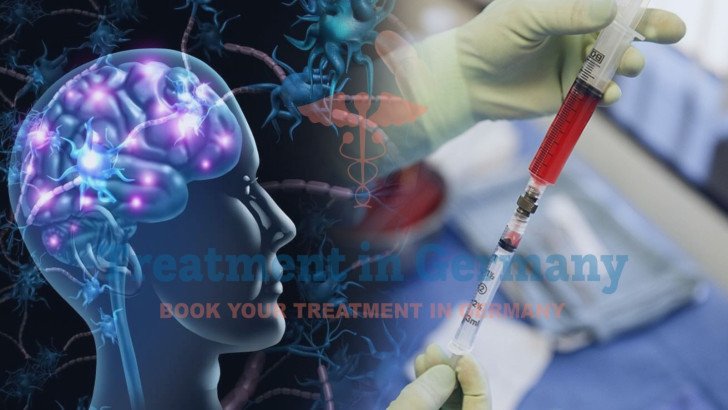
The disease leads to impaired speech and interaction with other people, which in turn leads to mental retardation of the child.
Autism Spectrum Disorder (ASD) is a complex neurodevelopmental condition affecting social interaction, communication, and behavior, with an estimated prevalence of 1-2% in children globally. Germany, a leader in medical tourism, offers stem cell therapy, an innovative autism treatment that complements conventional therapies to address neurological and immune dysfunctions. Delivered by expert doctors, including German specialists for , in advanced hospitals, this therapy leverages mesenchymal stem cells (MSCs) and other alternative autism therapies to improve symptoms and enhance quality of life after treatment.
Autism Spectrum Disorder manifests in early childhood, typically before age three, with symptoms like impaired social communication, repetitive behaviors, and sensory sensitivities. Risk factors include genetic mutations, environmental influences, and immune dysregulation, potentially exacerbated by obesity, diabetes, or autoimmune diseases in families.
While no cure exists, stem cell therapy aims to modulate inflammation, enhance neuroplasticity, and repair neural connections, complementing behavioral and speech therapies. Germany’s hospitals in Germany are at the forefront of latest research in autism treatment, offering innovative autism treatments that improve cognitive, social, and behavioral outcomes, supporting quality of life after treatment for children with ASD.
Accurate diagnosis is essential for tailoring stem cell therapy for autism. Doctors use comprehensive assessments to confirm ASD and guide treatment plans.
German specialists in certified hospitals ensure precise diagnoses, enabling prompt initiation of innovative autism treatments in Germany.
Stem Cell Therapy for Autism in Germany
Stem cell therapy for autism uses mesenchymal stem cells (MSCs) from sources like umbilical cord blood, bone marrow, or adipose tissue to address neurological and immune dysfunctions. Hospitals integrate this therapy with autism treatment options to optimize outcomes.
Mechanisms of Stem Cell Therapy
Types of Stem Cells Used
Administration Methods
Outcomes and Efficacy
Clinical studies report 65-83% of children show improvements in social communication, behavior, and cognitive skills, with 70% experiencing sustained benefits after one year. Specific outcomes include:
Enhanced eye contact and attention (60-70% of patients).
Improved speech and communication skills (50% of patients).
Reduced repetitive behaviors and hyperactivity (40-60% of patients).
Better emotional expression and social interaction (65% of patients).
German specialists note that repeated treatments may increase success rates by 10-15%.
Safety and Side Effects
Stem cell therapy for autism is low-risk, with minimal side effects like mild fever, fatigue, or injection-site bruising in 10% of patients. Germany’s strict regulations, enforced by the Federal Institute for Drugs and Medical Devices (BfArM), ensure safety through certified protocols and rigorous cell screening.
Integration with Complementary Therapies
Complementary therapies enhance stem cell therapy for autism outcomes:
These therapies, standard in hospitals, ensure holistic autism therapy, improving quality of life after treatment.
Why Germany Excels in Stem Cell Therapy for Autism
Germany leads in medical tourism and autism treatment options in Germany due to:
Germany’s ASD treatment outcomes surpass EU averages by 5-10%, reflecting its expertise in autism therapy in Germany.
Challenges and Considerations
Stem cell therapy for autism is experimental, with limitations:
Hospitals address these through standardized protocols, patient screening, and trial participation, ensuring evidence-based care.
Conclusion
Stem cell therapy in Germany offers a promising adjunct to conventional treatments, leveraging mesenchymal stem cells to reduce inflammation, enhance neuroplasticity, and improve social and cognitive skills. Delivered by German specialists in DKG-certified hospitals in Germany, this innovative autism treatment integrates with complementary therapies to enhance quality of life after treatment. Supported by latest research in autism treatment, Germany remains a top destination for medical tourism in ASD care.
🌍Why Patients Worldwide Prefer Our Medical Services in Germany – Key Benefits Explained:
What is stem cell therapy for autism in Germany?
It uses mesenchymal stem cells to reduce inflammation and enhance brain connectivity, complementing autism therapy for improved outcomes.
How effective is stem cell therapy for autism in Germany?
Studies show 65-83% of children experience improved social, behavioral, and cognitive skills with innovative autism treatments in Germany.
Is stem cell therapy safe for children with autism in Germany?
Yes, with minimal side effects like mild fever, ensured by strict regulations in hospitals in Germany.
What types of stem cells are used for autism treatment in Germany?
Umbilical cord blood and bone marrow MSCs are common, tailored by German specialists for optimal autism treatment options in Germany.
How long does stem cell therapy for autism take in Germany?
Treatment spans 1-2 weeks with 6-8 injections, supporting medical tourism for autism therapy.
Can stem cell therapy be combined with other autism treatments in Germany?
Yes, it integrates with behavioral and speech therapies, enhancing quality of life after treatment.
Who is eligible for stem cell therapy for autism in Germany?
Children aged 2-16 with confirmed ASD diagnoses are assessed by doctors for innovative autism treatments in Germany.
Are clinical trials available for stem cell therapy for autism in Germany?
Yes, hospitals offer trials for alternative autism therapies, advancing latest research in autism treatment.
How does Germany’s stem cell therapy for autism compare globally?
Germany leads with advanced facilities and expertise, offering superior autism treatment options for medical tourism.
Can I get a stem cell therapy plan before traveling to Germany?
Hospitals provide personalized stem cell therapy for autism plans based on medical records.
For more information or a free consultation, visit our contact us page.
Kindly complete the form below, and our dedicated team will reach out to you promptly. We look forward to connecting with you soon!
Trierer Straße, 56072 Koblenz, Germany

.webp)
 (1).webp)

.webp)
 (1).webp)


.webp)
 (1).webp)

.webp)
 (1).webp)
